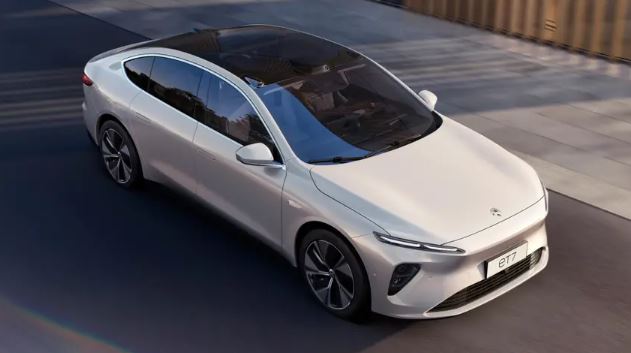NIO Revolutionizing Electric Vehicles with Solid State Batteries
The pursuit of advanced battery technologies has been a central focus of the automotive industry as it strives to address the limitations of current lithium-ion batteries. Solid-state batteries have emerged as a promising solution due to their potential to offer higher energy density, faster charging times, and improved safety. The transition from conventional lithium-ion batteries to solid-state batteries represents a significant advancement in the EV industry. Automakers and battery developers worldwide have been investing substantial resources into research and development to overcome the technical challenges and bring solid-state batteries to commercial viability. Nio’s successful incorporation of a 150 kWh solid-state battery pack in its vehicles underscores the company’s commitment to staying at the forefront of EV innovation and driving the industry toward a more sustainable and efficient future.
Supplied by WeLion, this cutting-edge technology will debut on the upcoming ES6 SUV, giving customers in China the option to choose this high-energy pack starting this month. While the initial claim of a range of 620 miles (1,000 km) on a single charge has been revised to approximately 578 miles, Nio has made the definitive decision to incorporate solid-state batteries into its electric vehicle lineup after facing delays and uncertainties. In May, the company filed a report with China’s Ministry of Industry and Information Technology, outlining its ambitious plans to equip three existing EV models with enhanced battery capabilities provided by WeLion, a developer of solid-state batteries.
The introduction of the 150 kWh solid-state battery pack is poised to revolutionize Nio’s vehicles by offering an extended range and improved energy density. Although the solid-state pack weighs slightly more than Nio’s current 100 kWh lithium-ion pack, coming in at 575 kg (1,268 pounds), it boasts an impressive energy density of 261 Wh/kg, which is 44.44 percent higher than the 180 Wh/kg of the lithium-ion pack. With other companies also exploring solid-state battery technology, it is increasingly likely that these advanced batteries will become the new standard in the EV market over the next decade.
WeLion, the battery supplier for Nio, has successfully delivered the first batch of its advanced battery cells to the Chinese automaker. Nio had previously announced its intention to start delivering EVs equipped with the 150 kWh battery packs in the first half of this year, and it is now fulfilling that promise after revising its deadlines. The semi-solid-state battery cells offer a higher energy density compared to their predecessors, thanks to a solid electrolyte, a silicon graphite composition anode, and a nickel-heavy cathode. These advancements result in an impressive energy density of 360 Wh/kg. To put it into perspective, Tesla’s highly acclaimed 4680-cell battery, considered the best on the market for a while, has an energy density ranging from 272 to 296 Wh/kg.
One of the most remarkable features of the new battery pack is its weight. According to China News EV Post, vehicles equipped with the solid-state pack weigh only 20 kilograms more than before, despite the significant increase in energy density. The Nio ET7, expected to feature this large battery, has the capacity to achieve over 600 miles of range on a single charge. This positions the ET7 as a formidable contender against upcoming vehicles like the Mercedes EQXX and the Lucid Air, which are set to enter the European market later this summer.
The ET7 is considered a direct rival to Tesla’s Model S saloon. However, if the range claims are officially certified by the WTLP (Worldwide Harmonized Light Vehicles Test Procedure), Nio could outperform other EV manufacturers such as Polestar and Mercedes, whose models, the Polestar 2 and EQS, offer ranges over 400 miles. This solidifies Nio’s position as the leader in long-range electric vehicles. Qin Lihong, the president of Nio, has acknowledged that the new battery pack comes at a significant cost, equivalent to that of the ET5 model, which is planned for release in Europe. It’s important to note that WeLion, the solid-state battery developer, serves other customers besides Nio, highlighting that Nio is not their exclusive partner.

